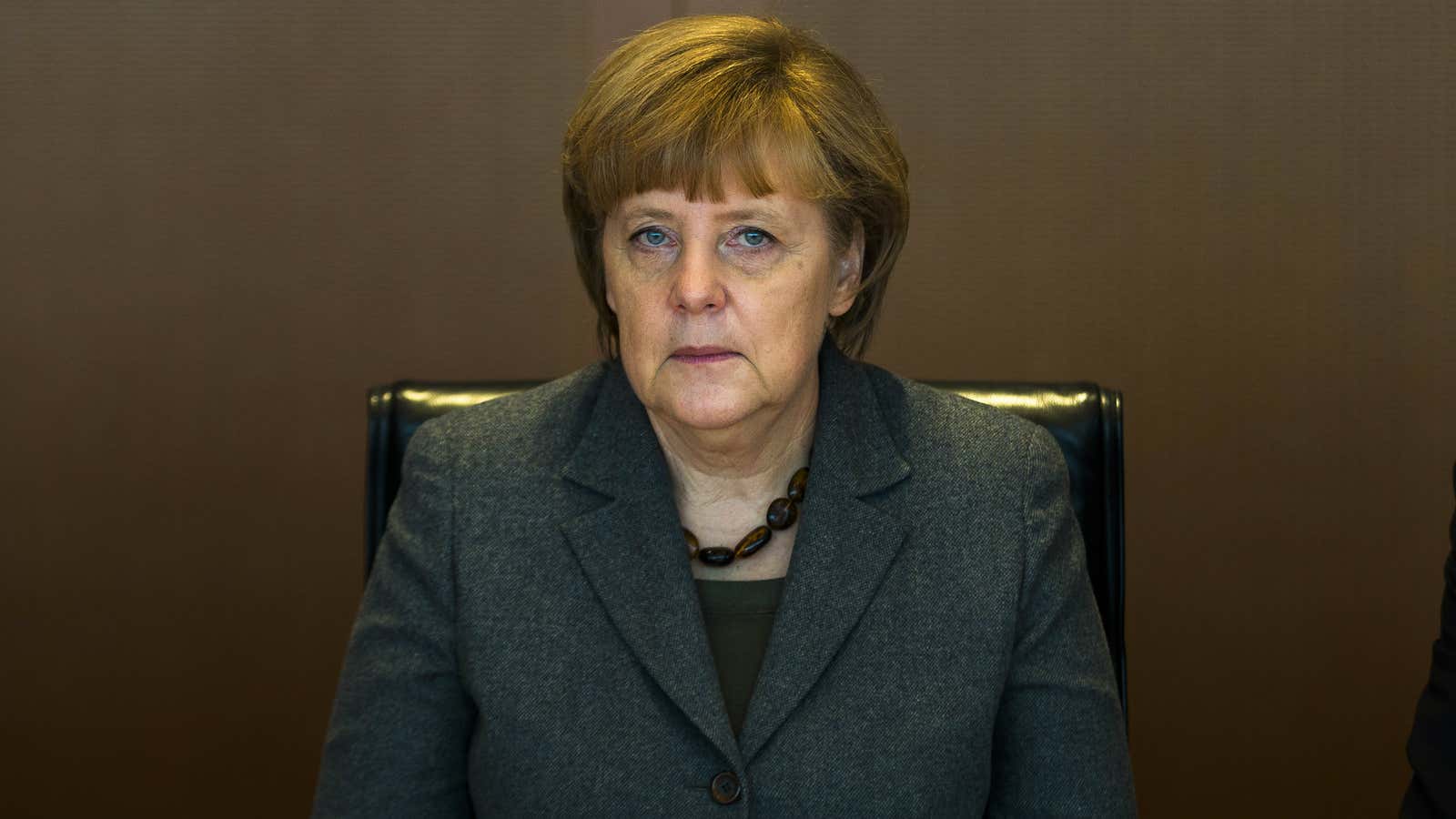Angela Merkel might be on the verge of an about-face. Yes, another one.
We’ve seen it before. After the Fukushima disaster in March 2011, Germany’s chancellor reversed course her stance over nuclear energy. She announced a plan to shut down all of Germany’s nuclear plants, and introduced an energy transformation the country now is going through.
This time, her hand is being forced by a Feb. 19 German constitutional court ruling that strengthens adoption rights for registered partnerships, which is a German form of gay marriage. Merkel’s party now finds itself in a debate over its position on the equality of these partnerships and traditional marriage. Merkel, the daughter of a priest, admitted publicly that she has a personal problem with registered partnerships because she grew up with the idea of a traditional marriage. She has asked for 10 days time to discuss the matter with fellow union members of the Christian Democratic Union before coming to a decision.
Last week, the court in Karlsruhe ruled that successive adoption—meaning when one partner has an adopted child, and the other adopts after a certain period of time—is lawful in registered partnerships. Until now, only traditional marriages had that right.
The court’s decision came as a slap in the face for Merkel and a conservative union that has not supported gay unions so far. During a heated debate in German Parliament today, several Merkel allies spoke out in opposition: Speaker Norbert Geis of the conservative wing argued that a child needs to have a mother and father “because that’s given by nature.” He also argued that the constitutional court would be wrong in its decision, causing loud laments from other parliament members (Geis will retire this year). Union speaker Olav Gutting acknowledged that registered partnerships indeed “could” be equal to traditional marriage under tax law, which is the second element of the debate.
Under German tax law, married couples can combine their income when they file their tax returns, but same-sex couples in a registered partnership don’t have that right. This summer, Germany’s constitutional court will rule on issues of tax equality. Many believe that the court will continue its course to strengthen the rights of same-sex couples.
Just two months ago, Merkel had voted against an equal treatment of both institutions and was celebrated by her party for her conservatism and protection of traditional marriage.
Her decision now is an important one. Critics believe Merkel will follow her typical strategy and distance herself from her old position, also because parliamentary elections are to be held this fall and 75% of Germans support tax equality for registered partnerships (German). If Merkel however decides to support gay rights, she will face pushback from the conservative wing of her party. Indecision is unlikely to satisfy both sides for much longer.
